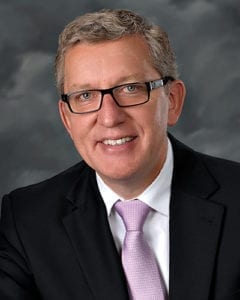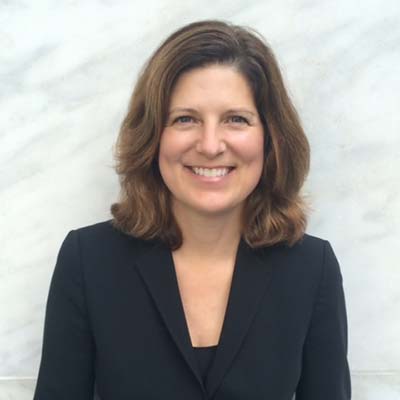Wall Street is often the source of inspiration for investment professionals. But Gerhard Pries took a different path. It was on the streets of Calcutta working with Mother Teresa’s Missionaries of Charity that he found a deeper motivation that has led him to the pinnacle of impact investing.

Pries is the Managing Partner of Sarona Asset Management, a Toronto-based impact investing firm that taps growing investment opportunities in frontier and emerging markets. With an eye to investments that offer strong financial returns and significant positive social and environmental impact, Sarona plays a unique role in frontier markets—delivering capital to entrepreneurs in under-served markets and helping develop companies and communities profitably and sustainably.
His career and life have taken him from corporate board rooms and the United Nations to rural African villages and West Bengal orphanages. These experiences have shaped a compassionate capitalist who embraces market solutions and sees increasing opportunity amid “our unique time in history” to shape a positive future.
Here are four lessons from Pries’ work:
1. Find Your Place
Pries’ career at Sarona is a long way from his first line of work at PricewaterhouseCoopers, where he was an advisor to mid-market enterprises. While the pay was good, “something was missing” and he eventually left the firm.
“I explored the writings of Mother Teresa, Jim Wallis and Ron Snyder, went to study theology in Europe and eventually stumbled into Mother Teresa’s Missionaries of Charity in Calcutta. What struck me when I first landed in Calcutta was that this whole debate that I was a part of, and still am a part of—the debate between capitalism and socialism—was a moot point in Calcutta. The poor were not looking for socialism or a handout. They simply wanted a way to access the market, to be participants in the market. Because all of them put food on the table through production, through trade and commerce, not through handouts or social programs.”
2. Renew What is Old
Sarona is a young company with a rich history. The firm traces its roots to 1953 when a group of business people formed a private company to invest in the Sarona Dairy in Paraguay. While impact investing is often thought of as a 21st century phenomena, that dairy investment 66 years ago was certainly impactful, combining sound investment principles with strong social values.
Over time the original private investment company became MEDA, an international development organization. Pries spun out Sarona Asset Management from MEDA in 2010, reflecting a desire to build a more scalable business.
Sarona still makes private equity investments, but the firm has shifted its deal sourcing. “When I started in frontier and emerging markets, there were no private equity firms in those markets, at all. The only way we could invest in emerging markets then was to fly out, invest directly in a company, fly back home and begin to pray that it goes well. Whatever you think about prayer, it’s not a great way to invest.” Today, Sarona invests in local private equity funds and private debt funds, run by people on the ground who know the industries and markets. The objective, however, remains the same: to deliver capital to entrepreneurs in under-served markets and help them develop their companies and their communities profitably and sustainably.
3. Ride Waves of Change
Riding the waves of change that are sweeping across the global economy will be crucial for the long-term success of business and society. Two significant shifts that Pries sees right now:
Development of a global framework to address climate change and inequality: “When the United Nations agreed on the 17 Sustainable Development Goals, we were believers,” said Pries. “The SDGs have become a galvanizing force for the corporate and investment sectors—particularly the impact investment sector.” Through its private equity funds program, supported by public government agencies, Sarona seeks to make a scalable and significant contribution towards the SDGs, embedding them in its monitoring and evaluation of their investments.
A new era of public/private partnerships: At a 2015 to the United Nations Assembly in Addis Ababa, Pries saw one nation after another declare, ‘If we’re going to put our shoulders into the Sustainable Development Goals, we have to work with the private sector.’ Across the street, a World Economic Forum had gathered and CEO after CEO echoed those sentiments. “We now have an opportunity that is unique in history to create real long-lasting partnerships to build a new economy based on collaboration between public and private sectors.”
4. Layer Your Impact
Tapping into his experience working with the Sisters in Calcutta, Pries says that in life and business, actions reverberate, creating meaning and impact across layers of society.
For Sarona, that means delivering thought leadership and financial impact across three levels.
The basic level is at the company investment level, where Sarona helps companies create better jobs, women’s empowerment, reduction of environmental footprint and other tangible and measurable impact.
A bigger impact, says Pries, is the partnership and influence Sarona has with private equity firms across frontier and emerging markets, helping them implement policies and strategies to improve social and environmental impact through their portfolio of companies.
At the apex level, Sarona is participating in the global discourse on public-private collaboration to build this new economy. “At this level, the impact is far-reaching. It’s not about the jobs we create this year; it’s about how the world structures itself for the next 100 years.”
Ever the optimist, Pries concludes, saying, “The world is a scary place, but I see hope in the way investors care about how their assets are deployed, and in the MBA students I speak to, who show far more interest in marrying heart and head than when I was in school. Yes, I think we’re living in a challenging time, but a very opportune time to be engaging globally.”




































